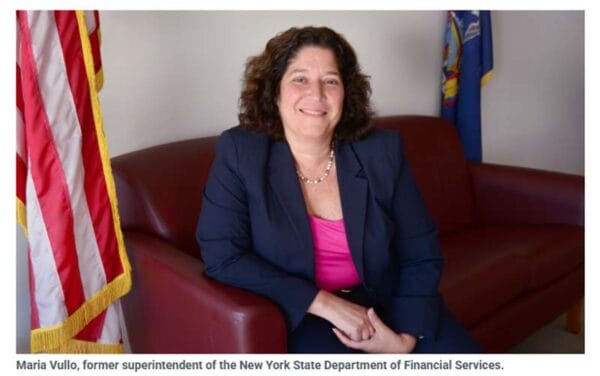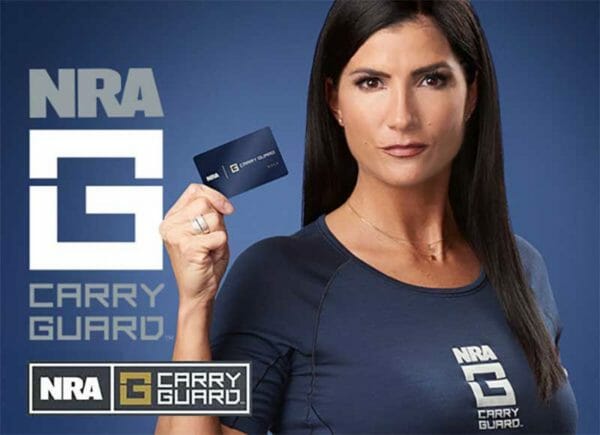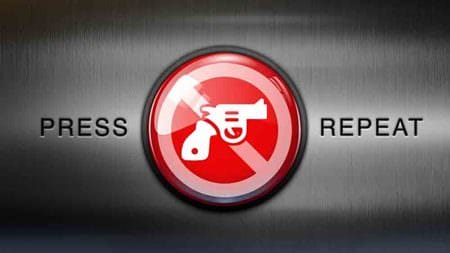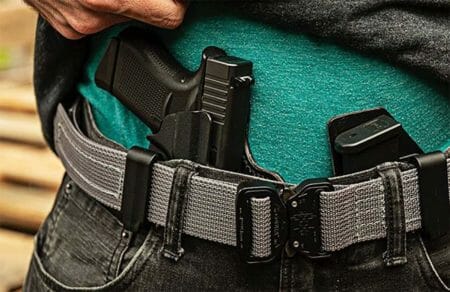Opinion

Tombstone, Arizona – Just over a year ago, the National Rifle Association won a stunning victory at the Supreme Court in NRA v. Vullo, et al.
The question in that case was whether it violated the NRA’s First Amendment rights for a New York State regulator to intentionally and openly use her regulatory authority to threaten and coerce insurance companies into refusing to do business with the NRA—solely because of the Association’s advocacy for Second Amendment rights.
The Supreme Court unanimously concluded that it did, reversing the Second Circuit Court of Appeals and remanding the case for further consideration.
Now, the Second Circuit has ruled that the case must be dismissed because Vullo and her colleagues, as government agents, enjoy qualified immunity and therefore cannot be sued.
In the original ruling, the court dismissed the case on two grounds: (1) that the NRA failed to state a valid First Amendment claim, and (2) that the defendants had qualified immunity. The Supreme Court addressed the first point but declined to hear arguments on the second, sending the case back to the Second Circuit for reconsideration in light of its First Amendment ruling.
Now, the Second Circuit has doubled down, holding that Maria Vullo, the now former Superintendent of the New York State Department of Financial Services (DFS), and her colleagues still enjoy qualified immunity. According to the court, there was not a “clearly established” prohibition against using government power to suppress the NRA’s First Amendment rights by pressuring insurance companies and banks to cut ties with the Association.
The court contends that qualified immunity applies unless both prongs of a two-part test are met:
- The government actor violated the rights of the plaintiff.
- The illegality of the action was clearly established such that a reasonable person in that position would recognize it as unlawful.
They argue that despite the Supreme Court’s unanimous ruling—and 60 years of established precedent—there wasn’t a “clearly established” rule prohibiting a regulator from threatening and coercing financial institutions to sever ties with a targeted group because of its political views.

This case is further complicated by the fact that the NRA and some of its insurance partners engaged in practices deemed illegal or improper under New York law in operating the Carry Guard quasi-insurance program. However, it’s crucial to note that these infractions were not the basis of Ms. Vullo’s campaign. The NRA conceded early in the case that these violations occurred and agreed to corrective actions, paying fines and penalties.
The infractions themselves were technical and state-specific, mostly resulting from sloppy implementation by the NRA, Josh Powell, and its vendors. The “Carry Guard” program was legal and acceptable in most states, but the NRA rolled it out too quickly and too broadly, failing to ensure compliance with all 50 states’ insurance laws and regulations.
Yet, these issues were not central to the accusations in the Vullo case. Had Vullo merely warned companies about the NRA’s compliance problems and urged caution in future dealings, there would have been no basis for the NRA’s complaint.

Instead, she and other New York officials, including then-Governor Andrew Cuomo, launched a coordinated campaign urging banks, insurance companies, and other financial institutions to cut ties with the NRA and other “gun-promoting” organizations—explicitly because of their advocacy. The campaign, sparked largely by the February 2018 massacre at Marjory Stoneman Douglas High School in Parkland, Florida, was no secret. Vullo made it clear in discussions with companies under her regulatory authority that her office could and would use its powers to pursue and punish firms that continued doing business with the NRA. Conversely, she assured those who complied that they would not face adverse investigations or regulatory actions.
Though she often couched her arguments in terms like “reputational risk,” Vullo was frank about her goal: to suppress “gun-promoting” organizations and advance “gun violence prevention.”
The notion that any reasonable person wouldn’t recognize the abuse of power in using a government office to threaten and coerce companies into isolating an organization for its political views is unfathomable. Yet the Second Circuit concluded that neither Vullo nor any other “reasonable” person in her position could have been expected to understand this—because the Supreme Court hadn’t “clearly established” it in recent history.
There’s another key element the Second Circuit apparently overlooked: Operation Choke Point.
Coincidentally, beginning in 2013, the Obama administration just so happened to launch a program in which banking regulators and the DOJ targeted certain legal businesses by labeling them “high risk” and pressuring financial institutions to cut ties. The affected industries included escort services, payday lenders, pawn shops, and gambling—but also firearms, ammunition, fireworks, and tobacco.
These were lawful businesses. Many were already heavily regulated. Yet they were singled out for political and philosophical reasons. Notably, cannabis businesses—illegal under federal law—were left alone.
When Operation Choke Point became public, it sparked a firestorm of criticism from the public, banking organizations, gun groups, legal experts, and Congress. The backlash forced the Obama DOJ to back away from the program. In May 2017, the U.S. House passed a bill prohibiting federal regulators from requesting or ordering financial institutions to cut ties with customers unless there was specific “good cause” (such as evidence of terrorism). The bill passed overwhelmingly, with only two dissenting votes, and was sent to the Senate later that year.
Though that legislation ultimately died, Operation Choke Point’s exposure and condemnation made it clear that targeting businesses for political reasons was widely recognized as improper and possibly unconstitutional.
Given this context, it is inconceivable that Vullo, Cuomo, and their teams were unaware of Operation Choke Point—and its implications—when they launched their coercion campaign against the NRA in 2018.
The Vullo case began under Wayne LaPierre’s leadership at the NRA, with the Brewer law firm carrying it to the Supreme Court. There, in March 2024, David Cole of the ACLU argued on the NRA’s behalf. The Court unanimously agreed the Second Circuit had erred in dismissing the NRA’s First Amendment claim but did not address qualified immunity. Upon remand, the Second Circuit has now reaffirmed its position.
NRA Executive Vice President and CEO Doug Hamlin released a statement saying the Association is weighing its options and considering another appeal.
From a layman’s perspective, this case seemed like a slam-dunk for the NRA—especially after their Supreme Court victory. The idea that a state regulator and governor wouldn’t realize it was unlawful to threaten and coerce companies into shunning an organization for political reasons is hard to fathom.
One wonders: would the Second Circuit have reached the same conclusion if the case involved Trump administration officials targeting Planned Parenthood?
As a fair-minded American, my first reaction is: the NRA should fight, fight, fight! But as a member of the NRA Board of Directors, my colleagues and I must weigh the costs to our members of continuing this battle. These questions will no doubt be at the forefront of conversations among directors, staff, and attorneys in the days ahead. I’ll keep you posted on our decision.
*Of course, these opinions are my own and do not reflect any official position of the National Rifle Association.
About Jeff Knox:
Jeff Knox is a dedicated political activist and the director of The Firearms Coalition, following in the footsteps of his father, Neal Knox. In 2024, Jeff was elected to the NRA Board of Directors, underscoring his lifelong commitment to protecting the Second Amendment. The Knox family has played a pivotal role in the ongoing struggle for gun rights, a legacy documented in the book Neal Knox – The Gun Rights War, authored by Jeff’s brother, Chris Knox.
Founded by Neal Knox in 1984, The Firearms Coalition is a network of individual Second Amendment activists, clubs, and civil rights organizations. The Coalition supports grassroots efforts by providing education, analysis of current issues, and a historical perspective on the gun rights movement. For more information, visit www.FirearmsCoalition.org.
Supreme Court to Consider Allegations of Free Speech Violations by New York Official in NRA Case
National Rifle Association Settles New York Insurance Violation Case for $2.5M






They all need to be held accountable.
How and how much should it cost is the tricky part
Operation Choke Point? Obama makes me want to gag more than the imbecile Biden.
Ms. Vullo appears to be your typical liberal mouth-breather.
she was outside of her job so she should not have immunity nor should the others needs to go back to scotus
The test should be – if a “private citizen” did that and was dragged to court and held responsible for violating the Constitution, so should any public official – elected or appointed. This is one of the reasons why 65% of the country thinks the US will be in Civil War in the next 5 years – rules for thee, not for me. It will all even out in the end, once Bloomberg is gone.
“When I Was Kid, This was a Free Country!”
G. Gordon Libby
After getting a win from the Supreme Court, is this a time to just walk away?
Damn she is one ugly Demokrat.
NRA Director Judge Journey responds to the EVP/CEO problem,
https://2awhiterook.com/nra-director-journey-responds-to-nra-evp-ceo-problem/
Official, or unofficial? NRA’s EVP/CEO…
https://2awhiterook.com/jeff-knox-again-responds-to-nras-evp-ceo-problem/
Can someone from NRA show me, where in the bylaws, the NRA is permitted to have an EVP/CEO?
https://2awhiterook.com/jeff-knox-on-nras-evp-ceo-problem/